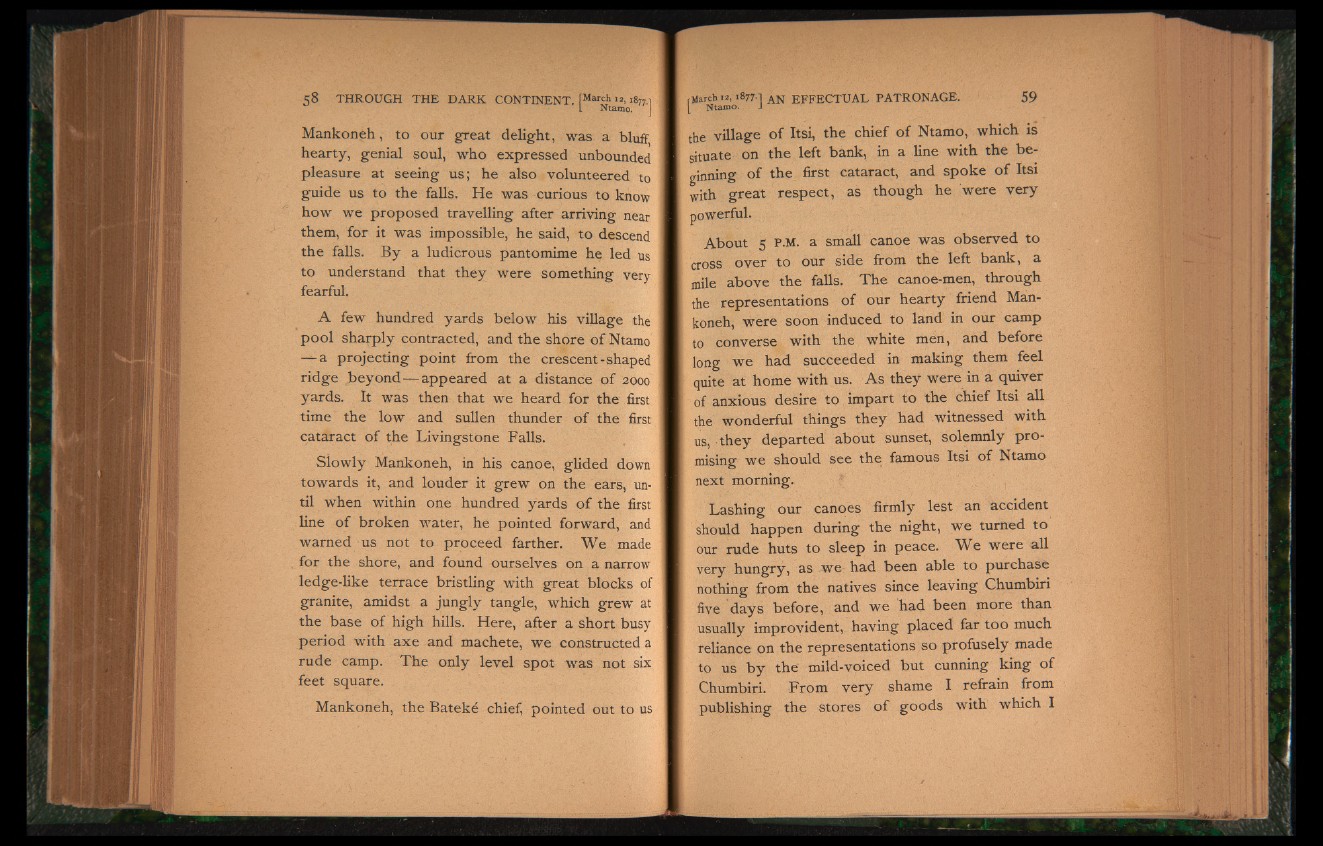
Mankoneh, to our great delight, was a bluff
hearty, genial soul, who expressed unbounded
pleasure at seeing us; he also volunteered to
guide us to the Falls. He was curious to know
how we proposed travelling after arriving near
them, for it was impossible, he said, to descend
the falls. By a ludicrous pantomime he led us
to understand that they were something very
fearful.
A few hundred yards below his village the
pool sharply contracted, and the shore of Ntamo
— a projecting point from the crescent-shaped
ridge beyond— appeared at a distance of 2000
yards. It was then that we heard for the first
time the low and sullen thunder of the first
cataract of the Livingstone Falls.
Slowly Mankoneh, in his canoe, glided down
towards it, and louder it grew on the ears, until
when within one hundred yards of the first
line of broken water, he pointed forward, and
warned us not to proceed farther. We made
for the shore, and found ourselves on a narrow
ledge-like terrace bristling with great blocks of
granite, amidst a jungly tangle, which grew at
the base of high hills. Here, after a short busy
period with axe and machete, we constructed a
rude camp. The only level spot was not six
feet square.
Mankoneh, the Bateke chief, pointed out to us
rMarch 12,1877.1 AN EFFECTUAL PATRONAGE.
[ Ntamo. J
the village of Itsi, the chief of Ntamo, which is
situate on the left bank, in a line with the beginning
of the first cataract, and spoke of Itsi
with great respect, as though he were very
powerful.
About 5 P.M. a small canoe was observed to
cross over to our side from the left bank, a
mile above the falls. The canoe-men, through
the representations of our hearty friend Mankoneh,
were soon induced to land in our camp
to converse with the white men, and before
long we had succeeded in making them feel
quite at home with us. As they were in a quiver
of anxious desire to impart to the chief Itsi all
the wonderful things they had witnessed with
us, they departed about sunset, solemnly promising
we should see the famous Itsi of Ntamo
next morning.
Lashing our canoes firmly lest an accident
should happen during the night, we turned to
our rude huts to sleep in peace. We were all
very hungry, as we had been able to purchase
nothing from the natives since leaving Chumbiri
five days before, and we had been more than
usually improvident, having placed far too much
reliance on the representations so profusely made
to us by the mild-voiced but cunning king of
Chumbiri. From very shame I refrain from
publishing the stores of goods with which I